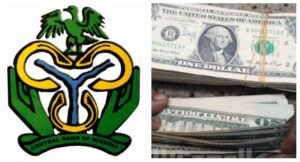In Nigeria, a nation grappling with severe economic challenges, loan apps have become a go-to solution for millions seeking to navigate financial hardship.
With over 100 million Nigerians living below the poverty line, according to the National Bureau of Statistics, and inflation rates reaching 34.2%, as reported by Trading Economics, many citizens face daily struggles to afford basic necessities. Traditional banking systems often exclude low-income earners due to stringent requirements, pushing them toward digital lending platforms like OPay, PalmPay, and FairMoney, which promise instant loans without collateral. While these apps offer a glimmer of hope for some, their predatory practices—exorbitant interest rates, hidden fees, and aggressive debt recovery tactics often deepen financial distress. In this report Sultan Rabiu talks about whether loan apps are genuinely helping Nigerians escape poverty or ensnaring them further in debt, drawing on real cases, data, and expert insights.

The Appeal of Loan Apps Amid Economic Hardship
Nigeria’s economic landscape has driven the rise of loan apps, particularly among the unbanked and underbanked. The Central Bank of Nigeria (CBN) reported in 2023 that only 45% of Nigerians have access to formal financial services, leaving a significant gap that digital lenders have exploited. Apps like OPay, with over 30 million users as of 2024 per TechCabal, and PalmPay, with 25 million users according to BusinessDay, provide loans ranging from ₦5,000 to ₦500,000 within minutes. These platforms use smartphone data to assess creditworthiness, making them accessible to small business owners, traders, and low-income earners who lack the documentation required by traditional banks.


For some Nigerians, loan apps have been a lifeline. In a Punch Nigeria interview, Funmilayo Adebayo, a Lagos-based trader, explained how a ₦50,000 loan from FairMoney enabled her to restock her market stall during a cash shortage, saving her business from collapse. Such stories highlight the potential of loan apps to provide critical support during emergencies, offering funds that can mean the difference between survival and destitution. However, the relief is often short-lived, as the terms of these loans frequently lead to greater financial strain.
High Interest Rates and Hidden Fees
One of the most troubling aspects of loan apps in Nigeria is their predatory lending practices, particularly the high interest rates they impose. A 2024 investigation by The Guardian Nigeria revealed that many apps charge interest rates as high as 30% per month, equating to an annual percentage rate (APR) of over 360%. In comparison, the CBN’s benchmark lending rate in 2024 was approximately 18.75%, meaning loan apps charge rates 20 times higher. For example, a Twitter post by @OnyeMa__ , a legal professional known as FC LAWYER, in 2024 showcased a loan from OPay where a ₦26,000 loan required a repayment of ₦33,800 within 14 days—a 30% interest rate. Such rates often catch borrowers off guard, especially those unfamiliar with financial terminology.


The Consumer Protection Council of Nigeria (CPC) has flagged these rates as exploitative, noting in a report that many loan apps fail to disclose the full cost of borrowing upfront.
Aggressive Debt Recovery Tactics and Harassment
Beyond high interest rates, loan apps have gained notoriety for their aggressive debt recovery methods, which often violate privacy and dignity. A BBC Africa report documented cases where apps like FairMoney and Branch sent threatening messages to borrowers’ contacts, publicly shaming them for unpaid debts. Chidi Okeke, a 29-year-old driver from Port Harcourt, shared in a Channels TV interview how FairMoney sent messages to his family and friends, labeling him a “chronic debtor” after he missed a repayment deadline by three days. This public humiliation caused severe emotional distress and damaged his relationships.

A 2024 Sahara Reporters investigation revealed that loan apps often access users’ phone contacts and data during onboarding, using this information to harass borrowers and their networks when payments are delayed. The Nigeria Data Protection Commission (NDPC) has issued warnings to over 50 loan apps, including OPay and PalmPay, for breaching data privacy laws since 2023, but enforcement remains inconsistent.
A Cycle of Debt: Deepening Poverty
While loan apps promise quick financial relief, they often trap users in a cycle of debt, exacerbating poverty. A study by FinTech Association of Nigeria (FinTechNGR) found that 60% of loan app users take new loans to repay old ones, creating a vicious debt spiral. Blessing Nwankwo, a 34-year-old single mother from Enugu, shared in a Vanguard interview how a ₦30,000 loan from Branch to pay her children’s school fees ballooned to ₦50,000 in two months due to interest and late fees. Unable to repay, she borrowed from PalmPay to settle the first debt, only to accumulate over ₦100,000 in debt across multiple apps, with no clear path to repayment.

The psychological toll of this debt cycle is significant. The Nigerian Psychological Association reported that debt-related stress from loan apps contributed to a 25% rise in anxiety and depression cases among young Nigerians. In extreme cases, the pressure has led to tragic outcomes. In 2023, The Punch reported the suicide of a 27-year-old man in Ogun State who was overwhelmed by harassment from loan app agents after defaulting on a ₦15,000 loan. These cases illustrate how loan apps, rather than alleviating poverty, often deepen financial and emotional hardship for Nigerians.
Regulatory Efforts and Calls for Reform
The Nigerian government and regulatory bodies have attempted to address these issues, but significant challenges remain. The Federal Competition and Consumer Protection Commission (FCCPC) launched a crackdown on illegal loan apps, delisting over 100 from the Google Play Store, including notorious offenders like Sokoloan and LCredit, as reported by TechCabal. The CBN has also tightened regulations, mandating that all digital lenders register and comply with consumer protection laws. However, enforcement is weak, and many unregistered apps continue to operate.


Experts are calling for stronger measures. Dr. Abiola Salami, a financial literacy advocate interviewed by ThisDay, emphasized the need for better financial education to help Nigerians understand loan terms and avoid predatory lenders. He also advocated for caps on interest rates, similar to Kenya’s 2019 law that limited digital lenders to a maximum APR of 36%. The FinTech Association of Nigeria has urged loan apps to adopt ethical practices, such as transparent fee structures and humane debt recovery methods, to rebuild trust among users.
Conclusion
Loan apps like OPay, PalmPay, and FairMoney have become a double-edged sword for Nigerians. For some, like Funmilayo Adebayo, they provide critical support during financial emergencies, offering a temporary escape from hardship. However, the overwhelming evidence—exorbitant interest rates, aggressive harassment, and a cycle of debt—suggests that these apps often do more harm than good. cases like Blessing Nwankwo’s and Chidi Okeke’s, alongside data from FinTechNGR and The Guardian Nigeria, reveal how loan apps exploit vulnerable Nigerians, sinking them deeper into poverty rather than lifting them out.



